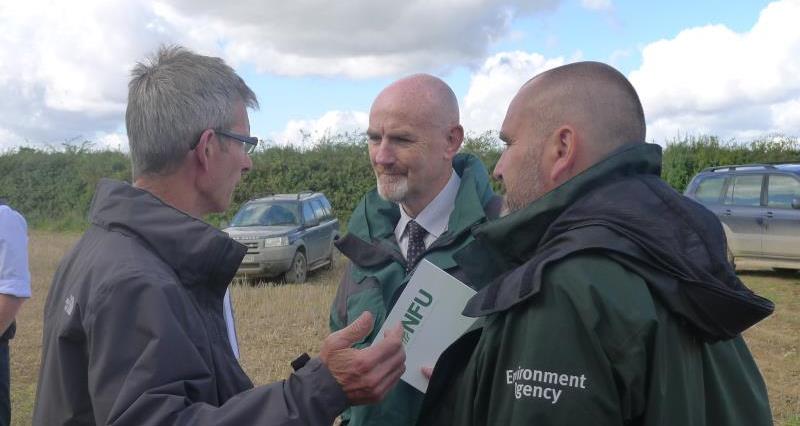Some farmers and growers will lose access to some of their historic water allocation as a result of the changes.
The new licensing policy for groundwater licences means that, in future, permitted abstraction will be based on past actual use.
This means that in many cases farmers will lose some of the volumetric headroom currently provided for in their expiring licences. Headroom is the volume of water not used during normal British summers, but which is designed to meet crop irrigation needs in dry years.
The NFU successfully lobbied to change the Agency’s original proposal, which would have led to significant reductions in licensed water volume.
Abstractors from rivers and surface water sources are unlikely to face limits to their water allocation but may face new or changed ‘Hands off Flow’ (HOF) conditions, designed to protect river ecology at times of low flow.
The new policy has been introduced in East Anglia to deal with licences expiring in March 2018 and beyond. The two catchments primarily affected next year will be the Cam and Ely Ouse catchment (where 150 groundwater licences are due for renewal) and the Broadland Rivers catchment.
Each licence will be determined on its own merits but there is broad agreement between the NFU and Environment Agency that, wherever possible, spray irrigation licences will be renewed based on the peak use of the licence between the years 2000-15. Crucially, this timeline includes a series of relatively dry years when irrigation need was higher than average.
Licences without an expiry date (so-called ‘permanent’ licences of right) are not affected but, in a parallel exercise, the Environment Agency is continuing to review all abstractions to ensure that environmental features are protected.
The NFU has been engaged in ongoing discussions with Defra and the Environment Agency leading up to the changes in abstraction licensing renewal policy.
Andrew Blenkiron, Estates Director at the Euston Estate in Suffolk and a member of the NFU team engaged in those discussions, gave a cautious welcome to the Agency’s announcement.

“Clearly, any reduction in our access to water based on past use will hamper our ability to increase production of potatoes, carrots and onions. Indeed, some farmers may need to peg back their production,” said Andrew.
“But we have come a long way from the Agency’s original plans for a significant clawback of irrigated water allocation which would have had a massive impact on crop yield and quality during dry years.”
“It’s reassuring that the Agency has been keen to understand how we use water, and willing to find a pragmatic solution to balance the needs of business and the environment,” he said.
Paul Hammett, NFU water resources specialist, said that farmers understand the need to protect the environment but noted that the ‘no deterioration’ element of the WFD would continue to cause a real headache for local food producers, especially during dry years.
“This issue, linked with long term forecasts of climatic change, may prompt a strategic rethink about how our farmers will meet the future food demands of a growing population”, he said.
The NFU is seeking a better understanding of, and confidence in, the considerable body of work undertaken by the Environment Agency that links groundwater abstraction to river ecology.
The NFU is also keen to explore opportunities for farmers to utilise surplus groundwater by diverting it into storage reservoirs when, for example, aquifer levels are unusually high.
The Environment Agency will be informing affected licence holders by letter in late July and early August, and has arranged a series of drop in sessions designed to support licence holders in preparing their applications.
The Environment Agency has produced a supporting guidance note Renewal of time-limited licences in East Anglia
